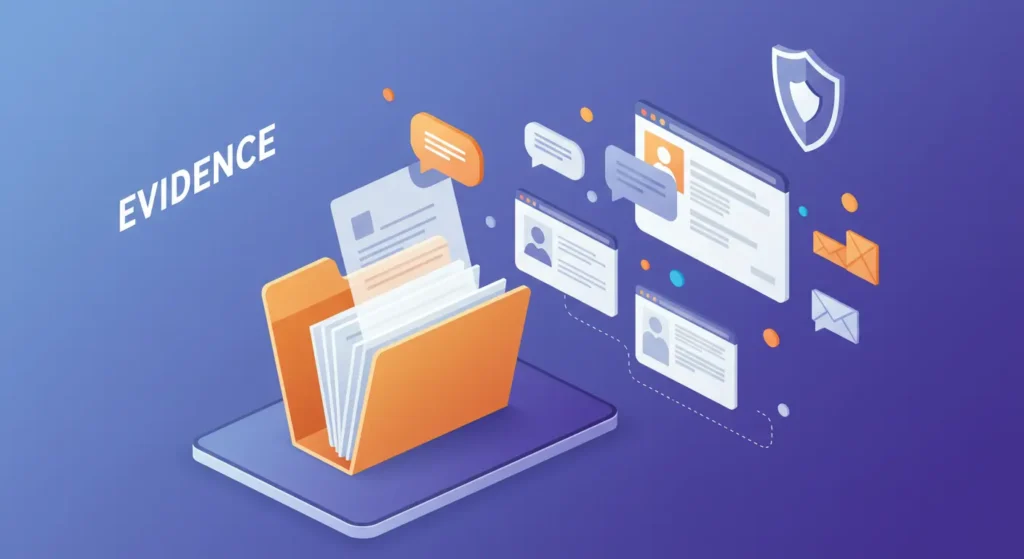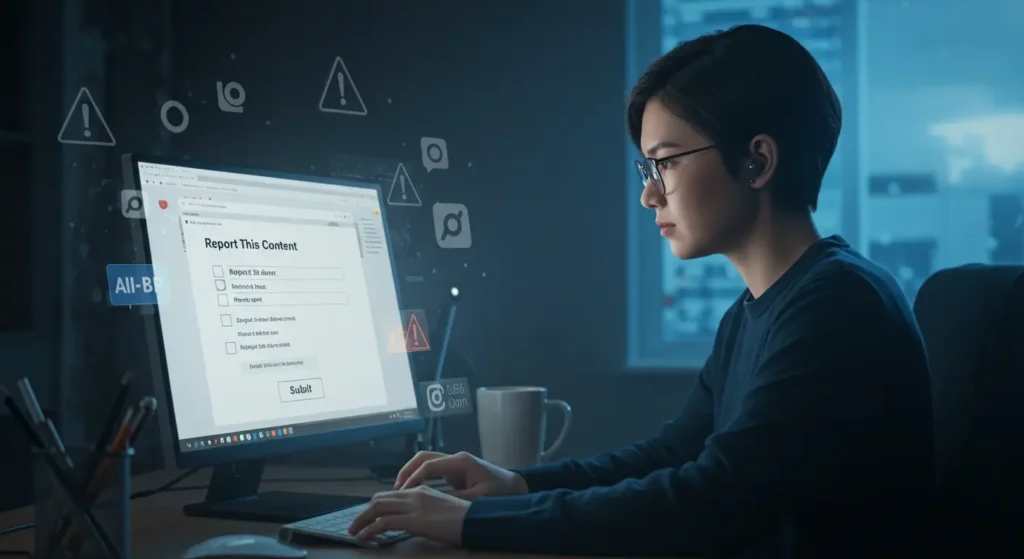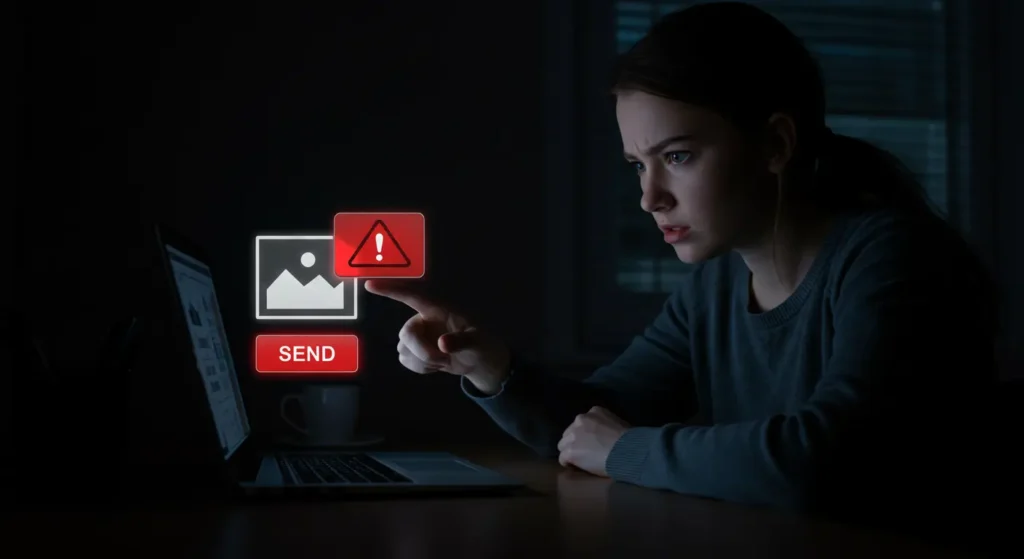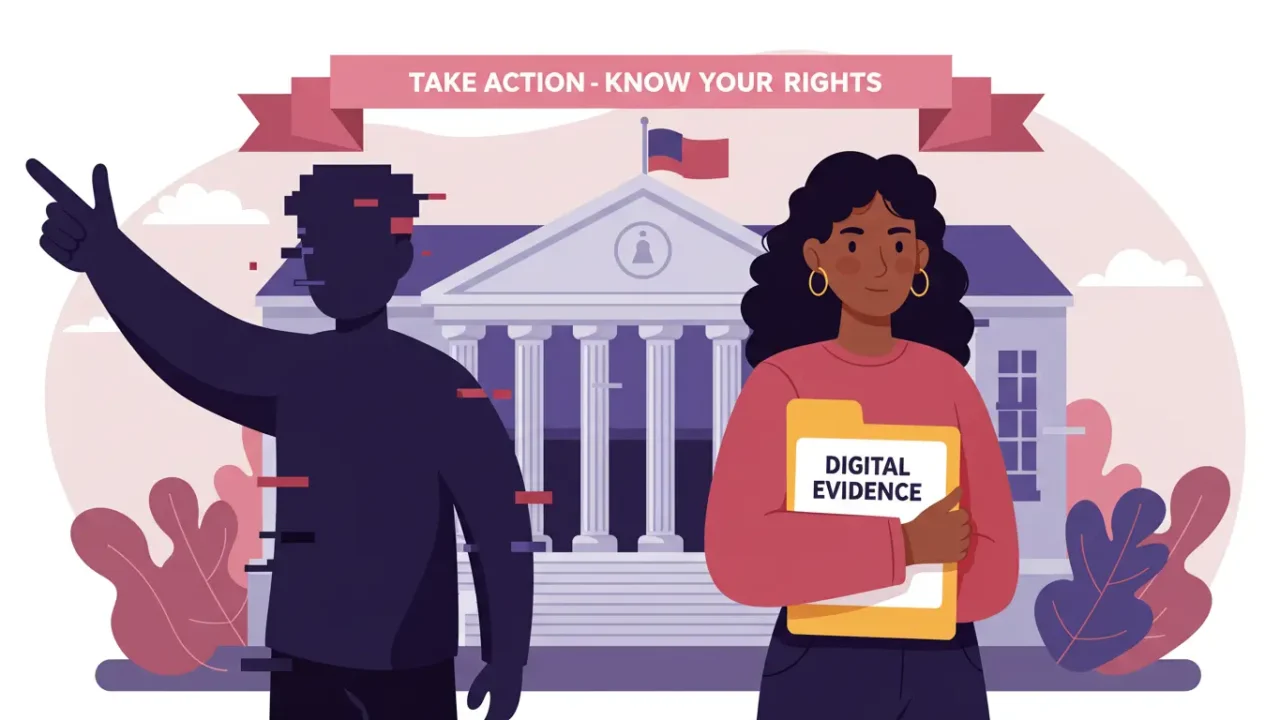What to Do if Someone Posts Your Nudes (Female Edition)
This Is Not Your Fault
When you discover that someone has shared your private photos without permission, your first thought might be to blame yourself. You might think you should have known better, been more careful, or never taken the photos in the first place. Stop right there.
What happened to you is not your fault. The person who chose to share your intimate images is the one who did something wrong. They violated your privacy and broke your trust. This is about their choices and their character, not yours.
Taking private photos is normal. Sharing them with someone you trust is normal. What isn’t normal or acceptable is for someone to share those images without your consent. The blame for this situation belongs entirely with the person who betrayed you.
You might feel embarrassed, angry, scared, or all of these emotions at once. These feelings make complete sense. Having your privacy violated this way is traumatic. But please remember that having these photos taken or shared doesn’t change who you are or diminish your worth as a person.
If you are a male, and you are looking for what to do if someone posts your nudes, you can check our other blog here – Posts Your Nude if You are a Male.
Right now, you need practical steps to handle this situation. You also need to know that recovery from this experience is absolutely possible. Many women have been through exactly what you’re facing and have come out stronger on the other side.
What to Do if Someone Posts Your Nudes if You are a Female
Finding yourself in a situation where someone has posted your nudes online can feel overwhelming, but there are clear steps you can take to regain control. Knowing what to do if someone posts your nudes means acting quickly while also taking care of your emotional wellbeing throughout the process.
The most important thing is to approach this systematically. You don’t have to figure everything out at once, but taking action as soon as possible will help limit how far the images spread and give you the best chance of getting them removed.
Every situation is different, but the basic steps remain the same: document what happened, report the content, know your legal rights, and get support from people you trust. Let’s break down each of these steps so you know exactly what to do.
Save the Evidence Right Away

Before you do anything else, you need to collect evidence of what happened. This might be the last thing you want to do when you’re feeling upset, but having this documentation will be crucial for reporting the content and potentially pursuing legal action.
Take screenshots of everything. Capture the actual post with your photos, making sure to include the username of the person who posted them. Get the date and time stamps, any captions or text that goes with the post, and any comments or reactions from other users.
If someone sent you a link to the post or told you about it, screenshot those messages too. If the images appear on multiple websites or social media accounts, document each instance separately.
Make sure your screenshots are clear and include as much information as possible. Save them in a secure folder on your phone or computer where you can easily find them later. You’ll need these images when you report the content to platforms and potentially when speaking with law enforcement or lawyers.
Don’t worry about taking perfect screenshots or understanding all the technical details. Just focus on capturing the basic information: what was posted, who posted it, when it was posted, and where you found it.
Report the Image to the Platform
Every major social media platform and website has policies against sharing intimate images without consent. The key is knowing how to navigate their reporting systems effectively.
For Instagram, find the post and tap the three dots in the corner. Select “Report” and choose “It’s inappropriate.” Instagram will give you options that include reporting non-consensual intimate images. Be specific about what happened.
On Facebook, click the three dots on the post and select “Find support or report post.” Choose the option for non-consensual intimate images. Facebook has been improving their response to these reports, so make sure to follow up if you don’t hear back quickly.
For Snapchat, you can report content through their support portal online. Explain clearly that intimate images of you were shared without your permission.
TikTok allows you to report videos by pressing and holding on the video, then selecting “Report.” Choose “Privacy and safety” and then specify that it contains non-consensual intimate content.
Reddit has a specific form for reporting non-consensual intimate images. You can find this in their help center under safety and security.
When filling out these reports, be direct and factual. Explain that intimate photos of you were posted without your consent. You don’t need to go into personal details about your relationship with the person or how the photos were originally taken. Stick to the facts about the violation.
Try to Get It Taken Down Fast

While platform reporting is important, sometimes you need to take additional steps to get content removed quickly. Many websites have direct contact methods for urgent content removal requests.
Look for support or contact information on the website where your images appeared. Many sites have specific email addresses for handling legal issues or content violations. Send a clear, professional message explaining that intimate images of you were posted without consent and requesting immediate removal.
You should also do a reverse image search to see if your photos have been shared on other websites. You can use Google Images or TinEye for this. Upload one of your photos or paste the image URL, and these tools will show you other places on the internet where the same image appears.
If you find your images on multiple sites, you’ll need to contact each one separately. This process can be time-consuming, but it’s important to be thorough. Some websites respond quickly to removal requests, while others may take longer or require more persistence.
Keep records of all your contact attempts and any responses you receive. This documentation will be helpful if you need to escalate the situation or seek legal help.
Know Your Rights
What happened to you isn’t just wrong on a personal level – it’s likely illegal. Most states now have laws that specifically criminalize sharing someone’s intimate images without their consent. This is sometimes called “image-based abuse” or “non-consensual image sharing.”
These laws recognize that sharing intimate images without permission is a serious violation that can cause lasting harm. Depending on where you live, the person who shared your photos could face criminal charges, and you might be able to sue them for damages.
The specific laws and penalties vary by state, but you have more legal protections than you might realize. Even if the person who shared your photos lives in a different state, you may still have legal options available.
You don’t need to navigate the legal system alone, and you don’t necessarily need money upfront to get legal help. Many lawyers who handle these cases work on contingency, meaning they only get paid if they win your case. There are also legal aid organizations that provide free or low-cost help to people dealing with privacy violations.
Consider reaching out to a lawyer who specializes in privacy law, cyber crimes, or harassment cases. Many offer free consultations where they can explain your specific rights and options. The Cyber Civil Rights Initiative also provides resources and can help connect you with appropriate legal support.
Talk to Someone You Trust
Going through this experience alone makes it much harder than it needs to be. You deserve support from people who care about you, even though talking about what happened might feel scary or embarrassing.
Think about who in your life you trust completely. This might be a close friend, family member, school counselor, therapist, or someone from a women’s support organization. You don’t need to share graphic details about the photos themselves – just explain that private images were shared without your permission and that you need support.
If you’re not ready to talk to someone you know personally, there are confidential support options available. The National Sexual Assault Hotline (1-800-656-4673) has trained counselors who understand privacy violations and can provide support and resources.
Many colleges and universities also have counseling services that can help students dealing with these situations. Your school likely has policies against this kind of harassment, and counselors can help you understand your options within the school system.
Remember that the people who truly care about you will be concerned about your wellbeing, not judgmental about what happened. Good friends and family members will want to help you through this difficult time.
Protect Yourself Going Forward

While you work on addressing the current situation, it’s also worth thinking about how to protect your privacy in the future. This isn’t about blaming you for what happened – the person who shared your photos is responsible for their actions, period. But there are steps you can take to reduce risks going forward.
Many people take intimate photos, and there’s nothing wrong with that. If you choose to continue taking or sharing private images, consider using apps with enhanced security features. Many phones now have private folders or vault applications that require additional authentication to access.
Be thoughtful about cloud storage settings. If your photos automatically back up to iCloud, Google Photos, or other cloud services, someone with access to your accounts could potentially see those images. Review your settings and decide whether you want intimate photos stored in the cloud.
Strong, unique passwords for all your accounts are essential. Consider using a password manager to help you create and remember secure passwords. Turn on two-factor authentication wherever possible to add an extra layer of security to your accounts.
Be Careful with Who You Trust
Trust should be earned over time, especially when it comes to sharing intimate images. Someone who truly cares about you will respect your boundaries and won’t pressure you to share photos you’re not comfortable sharing.
Pay attention to how potential partners talk about their ex-partners and whether they seem to respect other people’s privacy. Someone who shares gossip or private information about others is more likely to violate your privacy too.
Consider having direct conversations about privacy and boundaries before sharing intimate images. Make it clear that any photos you share are private and not to be shared with others or kept if the relationship ends.
Trust your instincts. If someone makes you feel pressured or uncomfortable about sharing photos, that’s a red flag. Someone who respects you will understand and support your boundaries around privacy.
You Are Not Ruined by This
The most important thing to understand is that this experience, as painful as it is, does not define you or determine your future. The photos that were shared represent just moments in time – they don’t capture the full picture of who you are as a person.
You might be worried about how this affects your reputation, your relationships, or your future opportunities. These concerns are completely understandable. But remember that most people understand the difference between someone who was victimized and someone who did something wrong.
The shame and embarrassment you might be feeling belong to the person who violated your trust, not to you. You have nothing to be ashamed of. You trusted someone who proved unworthy of that trust, but that doesn’t make you naive or foolish.
Focus on the people and activities that bring meaning to your life. Don’t let fear of judgment prevent you from pursuing your goals or living fully. The vast majority of people will forget about this situation much faster than you think they will.
Healing from this experience is absolutely possible. Many women have gone through similar violations and have rebuilt their confidence and sense of security. You have the strength to get through this, and there are people ready to help you along the way.
Recovery might take time, and that’s okay. Be patient with yourself as you process what happened and work toward feeling safe and confident again. Consider working with a counselor who has experience helping people recover from privacy violations and online harassment.
What Not to Do

When you’re feeling angry and hurt, you might be tempted to respond in ways that could make your situation worse. Here are some important things to avoid as you deal with this crisis.
Don’t retaliate by sharing intimate images of the person who hurt you, even if you have access to their photos. This might feel like justice, but it’s illegal in most places and could result in you facing criminal charges. It also makes you look less sympathetic if you pursue legal action.
Don’t isolate yourself out of shame or embarrassment. Keeping this experience completely secret can make the emotional impact much worse. You need support from people who care about you, even if talking about what happened feels difficult.
Don’t give in to threats or blackmail. If the person who posted your photos is trying to manipulate or control you with threats to post more images or share them more widely, document these threats and report them to law enforcement. Don’t let fear of additional exposure prevent you from taking action to protect yourself.
Don’t blame yourself or let others blame you for what happened. Taking intimate photos is normal, and trusting someone with private images doesn’t make you responsible when they betray that trust.
Moving Forward After Someone Posts Your Nudes
Learning what to do if someone posts your nudes is unfortunately necessary knowledge in today’s digital world. The most important things to remember are that this situation is manageable, you have both legal and practical options available, and this experience doesn’t define your worth or your future.
Document everything, report the content wherever you find it, understand your legal rights, and lean on people you trust for emotional support. Take steps to protect your privacy going forward, but don’t let fear prevent you from living your life fully.
What happened to you was a serious violation, but you have the strength and resources to handle it. Focus on the actions that will actually help your situation, and remember that healing and recovery are absolutely possible. You deserve privacy, respect, and support as you work through this challenging experience.








0 Comment